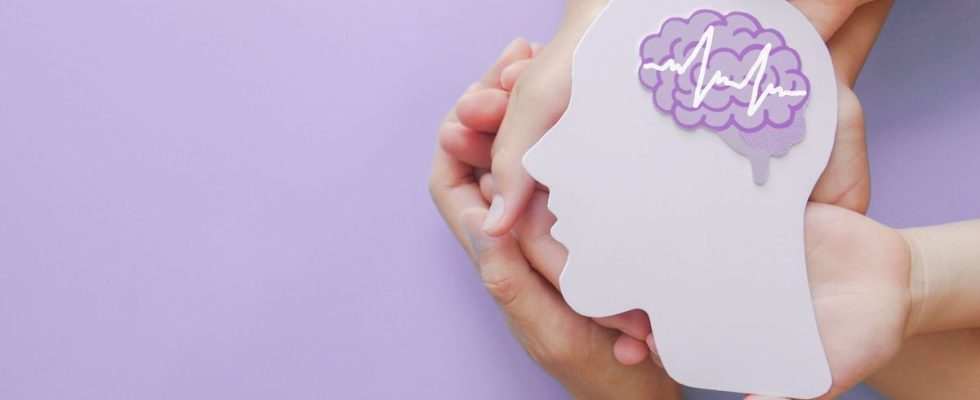Published on
Updated
Reading 2 mins.
According to a recent study conducted on mice, deep brain stimulation of hippocampal neurons would have the ability to restore certain cognitive and non-cognitive functions. Explanations.
Deep brain stimulation or “neurostimulation” is a surgical technique that consists of implanting electrodes in the brain to stimulate very small areas of the brain. Used in Parkinson’s disease, for example, it is also being considered in Alzheimer’s disease, a widespread condition that results in the degeneration of cognitive functions, such as memory.
In a paper published April 6 in the journal Cell Stem Cell, researchers used mice to study neurons generated in adulthood called adult hippocampal neurogenesis (AHN). The experiment, conducted on mice with Alzheimer’s disease, showed that deep brain stimulation of these neurons helped restore cognitive and non-cognitive functions.
Alzheimer’s: the generation of new neurons is possible
Researchers have used optogenetics to stimulate the suprammamillary nucleus (SuM) and enhance adult hippocampal neurogenesis in mice with Alzheimer’s disease. Optogenics is a technique that consists of introducing a gene into a cell that codes for a photosensitive protein, which will activate when it is illuminated with a specific light.
Their previous research had shown that stimulation of the suprammamillary nucleus could increase the production of new neurons and improve their qualities in normal adult mice. But in this new study, the researchers showed that this strategy, leading to the generation of new neurons, was also effective in Alzheimer’s mice.
However, having more new and improved neurons is not enough to restore memory and restore mood! Behavioral improvement in Alzheimer’s mice was only observed when these new neurons were enhanced by chemogenetics. The researchers used memory tests as well as established assessments to look for anxious and depressive behaviors to confirm these improvements.
New neurons involved in the elimination of amyloid plaques
To better understand the mechanism, the researchers also analyzed protein changes in the hippocampus of mice affected by Alzheimer’s in response to the activation of new neurons born in adulthood and modified. They found several well-known protein pathways activated inside cells, including those known to improve memory performance, as well as those that enable the removal of plaques linked to Alzheimer’s disease.
“It was striking that multilevel enhancement of such a small number of new neurons born in adulthood made such a profound functional contribution to diseased animal brains.”said Juan Song, lead author. “We were also surprised to find that activation of stimulation-enhanced neurons also promoted the process that can potentially clear plaque.”
Future efforts by the team will focus on developing potential therapies that will mimic the beneficial effects induced by activating new modified neurons. “We hope that these drugs could exert therapeutic effects in patients with little or no hippocampal neurogenesis”says Song. “Ultimately, the hope is to develop highly targeted, first-in-class therapies to treat Alzheimer’s disease and related dementia.”
